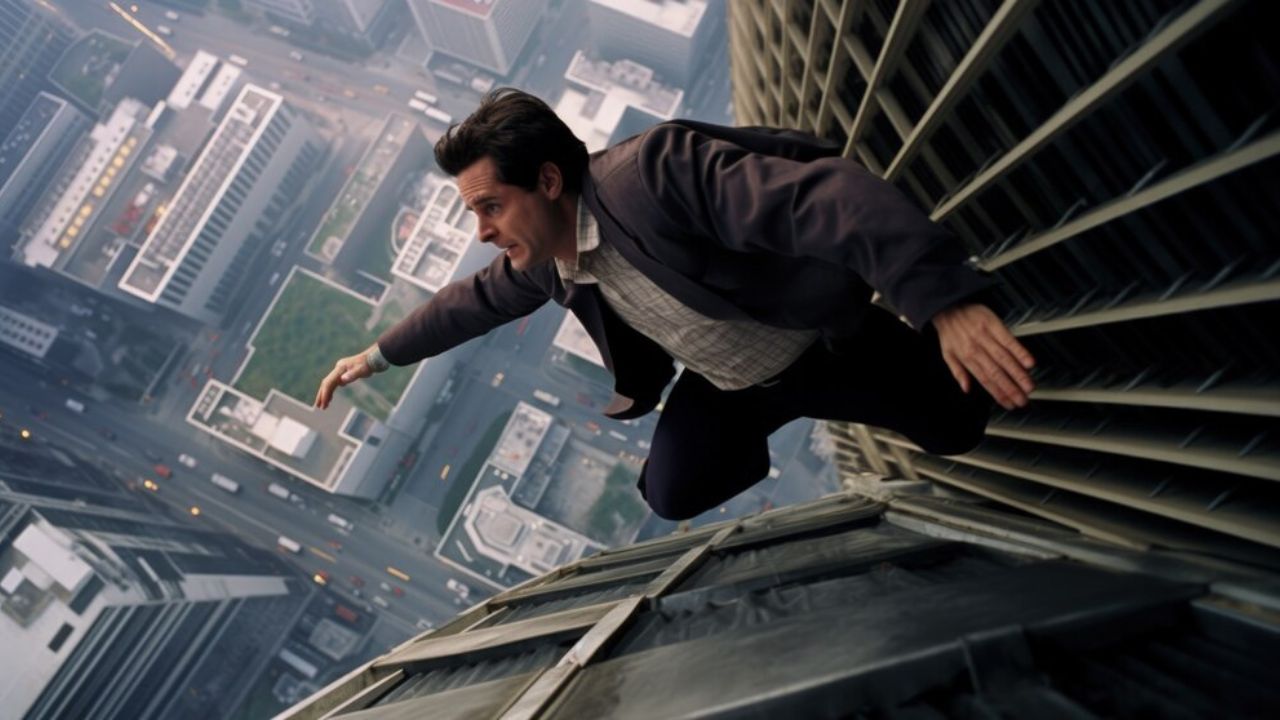Celebrity
How schindlers list explores defensiveness and lack of empathy

How schindlers list explores defensiveness and lack of empathy, a masterful portrayal of the Holocaust, is much more than a historical recount; it’s a study in human behavior, particularly defensiveness and lack of empathy. Steven Spielberg’s acclaimed film adaptation of Thomas Keneally’s novel offers an intricate exploration of these themes in the context of one of history’s darkest chapters. With its stark black-and-white cinematography and soul-stirring narrative, the film invites viewers to question what drives people to defend the indefensible and remain indifferent to suffering. This blog post will dissect these themes, offering a deeper understanding of how they manifest and what they reveal about human nature.
Schindler’s List as a Mirror to Human Psyche
At its core, Schindler’s List is a reflection of the human psyche in crisis. The characters in the film grapple with moral dilemmas that challenge their sense of self and societal roles. The narrative shines a light on how individuals justify their actions and decisions during extreme circumstances, often resorting to defensiveness as a shield against guilt and responsibility.
One of the most striking examples is Oskar Schindler himself. Initially portrayed as a profit-driven businessman, Schindler embodies the conflicting emotions and defenses people adopt when faced with moral choices. His initial lack of empathy is gradually dismantled as he witnesses the horrors around him, challenging his previous beliefs and actions. Schindler’s transformation throughout the film highlights the potential for change, even in those who seem indifferent.
Amon Goeth, on the other hand, represents the extreme end of defensiveness and lack of empathy. His brutal actions and chilling apathy towards the suffering of others are depicted with haunting realism. Goeth’s character serves as a stark reminder of what happens when defensiveness becomes a way of life, blocking out any sense of accountability or compassion.
The Role of Defensiveness in Historical Context
To understand the role of defensiveness in Schindler’s List, it’s essential to consider the historical context of the film. The Holocaust was a period marked by widespread denial and rationalization. Many individuals and institutions involved in the atrocities relied on defensiveness to protect themselves from the moral implications of their actions.
The film illustrates this through various characters who hide behind orders and ideology to justify their participation in the genocide. This defensiveness is not just a personal response but a collective one, deeply embedded in the social and political structures of the time. It highlights how societal norms and pressures can influence individuals to suppress empathy and act against their moral compass.
Schindler’s List serves as a cautionary tale, reminding viewers of the dangers of allowing defensiveness to dominate human behavior. It urges us to recognize and challenge these defenses in ourselves and others, promoting a culture of empathy and accountability.
Lack of Empathy as a Catalyst for Atrocity
Empathy, or the lack thereof, is a central theme in Schindler’s List. The film portrays the devastating consequences of a society devoid of empathy, where human lives are reduced to numbers and statistics. This absence of empathy is not a natural state but rather a learned behavior, reinforced by the dehumanizing ideologies and practices of the Nazi regime.
The bureaucratic nature of the Holocaust is depicted through scenes of systematic oppression and violence, where individual suffering is overlooked in favor of efficiency and obedience. This lack of empathy is perpetuated by the characters who blindly follow orders, ignoring the human cost of their actions.
Schindler’s List challenges viewers to confront the discomfort of recognizing this lack of empathy in themselves and society. It encourages us to cultivate empathy as a means of preventing future atrocities, emphasizing the importance of seeing others as human beings deserving of dignity and respect.
Oskar Schindler’s Journey Towards Empathy
Oskar Schindler’s transformation from a self-serving businessman to a compassionate savior is one of the most compelling aspects of Schindler’s List. His character arc serves as a testament to the power of empathy and the possibility of redemption, even in the darkest of circumstances.
Initially, Schindler is portrayed as someone who is primarily concerned with his own success and wealth. He is detached from the suffering around him, viewing his Jewish workers as mere tools for profit. However, as he witnesses the brutal realities of the Holocaust, Schindler’s perspective begins to shift. His interactions with individuals like Itzhak Stern, his Jewish accountant, and the workers in his factory, gradually awaken his sense of empathy.
This transformation is not immediate but rather a gradual process of self-reflection and moral awakening. Schindler’s growing empathy compels him to take increasingly risky actions to save as many lives as possible. His efforts to protect his workers, even at great personal cost, demonstrate the profound impact empathy can have on human behavior.
Amon Goeth’s Embodiment of Indifference
Amon Goeth, the sadistic Nazi officer in Schindler’s List, serves as a chilling embodiment of indifference and cruelty. His character contrasts sharply with Schindler’s evolving empathy, highlighting the destructive power of a lack of compassion.
Goeth’s actions are driven by a deep-seated indifference to human suffering. His violent outbursts and casual brutality are depicted with stark realism, painting a picture of a man who has fully embraced the dehumanizing ideology of the Nazi regime. Goeth’s lack of empathy is not just personal but institutional, reflecting the broader system that enabled and encouraged such behavior.
The film uses Goeth’s character to explore the psychological mechanisms that allow individuals to commit atrocities without remorse. It raises important questions about the nature of evil and the factors that contribute to the erosion of empathy and humanity.
The Impact of Empathy on Society
Schindler’s List not only depicts individual journeys towards empathy but also explores its broader societal impact. The film suggests that empathy can serve as a powerful antidote to violence and hatred, fostering a culture of understanding and compassion.
The acts of kindness and solidarity depicted in the film, whether by Schindler or by the Jewish community, emphasize the importance of empathy in creating and sustaining human connections. These moments of empathy provide a glimmer of hope amidst the darkness, reminding viewers of the resilience of the human spirit.
The film encourages audiences to reflect on their own capacity for empathy and its potential to drive positive change. It underscores the importance of nurturing empathy in various aspects of life, from personal relationships to broader societal interactions.
Lessons from Schindler’s List for Today’s World
While Schindler’s List is set in a historical context, its themes of defensiveness and lack of empathy remain highly relevant today. The film serves as a mirror, prompting viewers to examine their own behaviors and attitudes towards others.
In today’s world, where divisions and conflicts persist, Schindler’s List offers valuable lessons on the importance of empathy and understanding. It encourages us to move beyond defensiveness and engage with the experiences and perspectives of others, fostering a more inclusive and compassionate society.
The film challenges us to confront our biases and preconceived notions, urging us to prioritize empathy and connection over division and hostility. By doing so, we can work towards a more just and humane world.
Conclusion
Schindler’s List is a powerful exploration of defensiveness and lack of empathy, offering profound insights into the complexities of human behavior. Through its compelling narrative and characters, the film invites viewers to reflect on the moral choices we face and the impact of empathy in shaping our lives and society.
As we grapple with the challenges of our time, Schindler’s List serves as a reminder of the enduring power of empathy and the need for compassion in addressing the injustices of the world. By cultivating empathy and challenging defensiveness, we can create a future where humanity and dignity prevail.
For further exploration of these themes and insights on cultivating empathy in your own life and community, consider exploring additional resources and engaging in discussions on this critical topic.

Celebrity
What is Trina?

In the world of hair care, finding the perfect solution can feel like an endless quest. With so many products on the market promising shiny, healthy locks, it’s easy to get overwhelmed. Enter Trina—a revolutionary advancement in hair care technology that’s poised to change how we approach our daily hair routines. But what is Trina, and why should you care? In this blog post, we’ll explore the intricacies of Trina, its benefits, and how it can transform your hair care regimen.
Unveiling the Magic What Exactly is Trina?
Trina is not just another hair product; it’s a groundbreaking system designed to simplify and enhance your hair care routine. At its core, Trina combines advanced technology with premium ingredients to deliver exceptional results. Unlike traditional products that often require multiple steps and time-consuming processes, Trina streamlines your regimen, saving you time without compromising on quality.
Trina’s unique formulation is backed by years of research and development. It harnesses the power of cutting-edge scientific innovations to target common hair issues such as dryness, frizz, and lack of volume. The result? A comprehensive solution that caters to various hair types and concerns.
The beauty of Trina lies in its ability to adapt to individual needs. Whether you have curly, straight, or wavy hair, Trina offers customized care that brings out the best in your tresses. It’s a one-stop-shop for all your hair needs, making it a must-have in any beauty arsenal.
The Science Behind Trina Advanced Technology at Work
One of the most exciting aspects of Trina is the science that powers it. The creators of Trina have harnessed innovative technologies to address hair concerns at the root level. This means that Trina doesn’t just mask problems—it works to resolve them from within, offering long-lasting results.
At the heart of Trina is a proprietary blend of ingredients that work synergistically to nourish and protect hair. These ingredients are carefully selected to penetrate deeply, ensuring that each strand receives the attention it needs. From restoring moisture to strengthening hair fibers, Trina’s formula is designed to provide comprehensive care.
Additionally, Trina utilizes smart technology to assess individual hair needs. This means that every application is tailored to deliver the right amount of care, optimizing results and minimizing waste. It’s a personalized experience that elevates the standard of hair care.
Benefits Beyond Expectations Why Trina Stands Out
There are countless hair care products on the market, so what makes Trina stand out? For starters, its innovative approach to hair health sets it apart from traditional solutions. Trina isn’t just about temporary fixes; it’s about fostering lasting change in hair quality.
One of the standout benefits of Trina is its ability to significantly reduce styling time. With its all-in-one approach, you no longer need to juggle multiple products to achieve salon-worthy results. Trina simplifies your routine, allowing you to spend less time on maintenance and more time enjoying beautiful hair.
Trina’s also excels in versatility. It’s suitable for all hair types and can address a wide range of concerns, from enhancing shine to boosting volume. This adaptability makes it an ideal choice for anyone looking to upgrade their hair care regimen without the hassle of trial and error.
Tailored for You How Trina Adapts to Individual Needs
Everyone’s hair is unique, and Trina’s recognizes this by offering tailored solutions. The system’s smart technology assesses your hair’s specific needs and adjusts its formula accordingly. This means that whether you’re dealing with split ends or color damage, Trina has you covered.
Trina’s adaptability extends beyond its formula. Its user-friendly design allows for easy application, ensuring that even the busiest individuals can incorporate it into their routines. With Trina’s, achieving beautiful hair doesn’t require hours of dedication—it’s as simple as applying and letting the technology do the work.
Furthermore, Trina’s custom approach means that it evolves with you. As your hair changes over time, Trina adapts to meet new challenges, ensuring that your hair remains healthy and vibrant regardless of life’s demands.
A Greener Choice Trina’s Commitment to Sustainability
In today’s world, sustainability is more important than ever, and Trina’s is committed to making a positive impact. From sourcing ethically produced ingredients to minimizing waste, Trina’s prioritizes eco-friendly practices throughout its production process.
One of the ways Trina’s achieves this is through its innovative packaging. Designed to reduce plastic waste, Trina’s containers are made from recycled materials and are fully recyclable. This commitment to sustainability ensures that you can enjoy beautiful hair while minimizing your environmental footprint.
Additionally, Trina’s formulations are free from harmful chemicals commonly found in hair care products. By opting for clean, green ingredients, Trina not only benefits your hair but also contributes to a healthier planet.
The Future of Hair Care Why Trina is a Game Changer
Trina’s represents the future of hair care—an era where technology and beauty converge to deliver unprecedented results. By combining advanced science with user-friendly design, Trina takes the guesswork out of achieving healthy, beautiful hair.
The potential of Trina’s extends beyond just hair care. Its success paves the way for further innovations in the beauty industry, inspiring brands to prioritize both effectiveness and sustainability. Trina is not just a product; it’s a movement towards smarter, more responsible beauty practices.
For those seeking a hair care solution that truly delivers, Trina’s offers a glimpse into what’s possible. With its emphasis on quality, sustainability, and personalization, Trina sets a new standard in the world of beauty.
Unlocking Your Hair’s Potential How to Get Started with Trina
Ready to experience the magic of Trina’s for yourself? Getting started is simple. Begin by assessing your hair’s current needs and setting goals for what you hope to achieve. Whether it’s added volume, enhanced shine, or improved strength, Trina can help you reach your hair aspirations.
Once you’ve identified your goals, incorporating Trina’s into your routine is as easy as following the instructions provided. With regular use, you’ll begin to notice significant improvements in your hair’s health and appearance.
For those interested in exploring further, consider joining the Trina’s community. Connect with fellow users, share tips, and stay updated on the latest advancements in hair care technology. It’s a supportive space that celebrates the beauty of diversity and individuality.
Conclusion The Trina Transformation Awaits
In the ever-evolving world of hair care, Trina emerges as a beacon of innovation and excellence. Its ability to simplify routines, deliver exceptional results, and prioritize sustainability makes it a standout choice for anyone looking to elevate their hair care game.
By embracing Trina’s, you’re not just investing in your hair—you’re supporting a movement towards a more sustainable and personalized approach to beauty. With its advanced technology and commitment to quality, Trina offers a glimpse into the future of hair care.
Ready to unlock the full potential of your hair? Join the Trina’s revolution today and experience the transformative power of this groundbreaking system. Your hair deserves nothing less than the best, and with Trina, you can achieve it.
Celebrity
Andre Hakkak House: A Deep Dive into the Real Estate of a Business Mogul

Imagine a home that blends luxury, innovation, and the personal flair of a business mogul. Welcome to the world of Andre Hakkak, whose real estate ventures have captured the attention of the industry and beyond. This post takes you on a detailed tour of Andre Hakkak’s house, exploring the architectural wonders and design elements that make it a true masterpiece.
A Grand Introduction to Andre Hakkak’s Real Estate
Andre Hakkak House is known as a visionary in both the business and real estate sectors. His house is not just a residence; it’s a statement of his success and his taste for the finer things in life. The property serves as a testament to his ability to blend functionality with opulence, creating a space that reflects his personality and ambition.
Hakkak’s home is strategically located in a prestigious area that offers privacy and tranquility while still being accessible to the bustling city life. This balance is crucial for any business leader who seeks to unwind without disconnecting from their work entirely. The location itself adds a layer of prestige, making it one of the most talked-about properties among real estate enthusiasts.
The house stands as a symbol of innovative architecture and design, incorporating cutting-edge technology and sustainable practices. It’s not just a place to live; it’s a dynamic environment where every feature is thoughtfully considered to enhance the living experience.
Architectural Marvels and Design Elegance
The architectural design of Andre Hakkak’s house is a blend of contemporary and classic elements. It showcases clean lines, open spaces, and a seamless integration with the surrounding landscape. The exterior features a combination of stone, glass, and wood, creating a warm yet modern aesthetic.
Inside, the house opens up to expansive living areas filled with natural light. The use of large windows and open-plan designs creates a sense of flow and connectivity between different spaces. The interior design reflects a minimalist approach, focusing on functionality while maintaining an air of elegance and sophistication.
Each room is meticulously designed to serve a specific purpose, with custom furnishings and high-end finishes that cater to the tastes of its owner. The attention to detail is evident in every corner, from the curated art pieces that adorn the walls to the state-of-the-art entertainment systems.
Sustainable Living in Luxury
Andre Hakkak’s house is not just about luxury; it’s also about responsible living. Sustainability is at the core of the property’s design, featuring eco-friendly materials and energy-efficient systems. Solar panels, advanced insulation, and rainwater harvesting are just a few of the sustainable practices integrated into the home’s infrastructure.
The landscaping around the house complements its sustainable ethos, with native plants and trees that require minimal water and maintenance. This not only enhances the beauty of the property but also supports local biodiversity and reduces the ecological footprint.
Living sustainably doesn’t mean sacrificing comfort. Hakkak’s home is equipped with smart home technology that optimizes energy use while providing convenience and control at the touch of a button. From automated lighting and climate control to security systems, every aspect is designed to enhance efficiency without compromising on luxury.
The Importance of Location
Location is a critical factor in real estate, and Andre Hakkak’s house is no exception. Situated in a prime area, the property offers breathtaking views and easy access to essential amenities. The neighborhood is known for its exclusivity, providing a serene environment that’s perfect for both relaxation and productivity.
Being close to major business districts and cultural hubs allows Hakkak to maintain his professional commitments while enjoying the comforts of home. The proximity to top schools, healthcare facilities, and recreational centers adds to the property’s appeal, making it ideal for families or individuals who value convenience.
The location also ensures that the property’s value continues to appreciate, making it a sound investment for the future. It’s this combination of luxury, practicality, and strategic placement that sets Andre Hakkak’s house apart from others.
A Sanctuary for Creativity and Inspiration
Andre Hakkak’s house is more than just a living space; it’s a sanctuary for creativity and inspiration. The design fosters an environment where ideas can flourish, with quiet corners and open terraces that invite reflection and innovation.
The property features dedicated spaces for work and leisure, allowing Hakkak to balance his professional and personal life seamlessly. A private study equipped with the latest technology provides a quiet retreat for focused work, while entertainment areas and a home gym offer options for relaxation and wellness.
Art and nature play a significant role in the home’s ambiance, with carefully curated collections and landscaped gardens that inspire creativity. The integration of indoor and outdoor spaces enhances this effect, creating a harmonious environment that nurtures both mind and body.
Technological Integration for Modern Living
In today’s digital age, technology is a crucial component of modern living, and Andre Hakkak’s house embraces this fully. The property is equipped with a comprehensive smart home system that offers unparalleled convenience and control.
From voice-activated assistants to integrated security systems, technology is seamlessly woven into the fabric of the home. This not only enhances comfort but also provides peace of mind, knowing that every aspect of the house is monitored and optimized for efficiency.
Entertainment is another area where technology shines, with home theaters and multi-room audio systems that deliver an immersive experience. Whether hosting a movie night or enjoying a quiet evening with music, the technological amenities elevate the everyday living experience.
A Testament to Success and Vision
Ultimately, Andre Hakkak’s house is a testament to his success and vision. It represents more than just wealth; it embodies the principles of hard work, innovation, and a commitment to excellence. Every aspect of the property reflects these values, from its design and sustainability to its technological advancements.
For business moguls and aspiring entrepreneurs, the house serves as an inspiration—a reminder that with determination and vision, one can create spaces that not only reflect personal achievement but also contribute positively to the environment and community.
The story of Andre Hakkak’s house is one of ambition and accomplishment, offering valuable insights into the intersection of real estate, technology, and sustainability. It’s a narrative that resonates with those who seek to create a lasting impact through their endeavors.
Conclusion and Future Possibilities
Andre Hakkak’s house is a remarkable example of what can be achieved when luxury living meets innovative design. Its emphasis on sustainability, technology, and location make it a standout property in the realm of real estate. For those interested in exploring similar ventures, it provides a wealth of ideas and inspiration.
The future of real estate is undoubtedly intertwined with the principles exemplified in Hakkak’s home. As more individuals and businesses recognize the importance of sustainable and intelligent design, we can expect to see continued evolution in the industry.
Celebrity
Deborah hoffman volleyball coach san antonio tx: A Story Of Dedication And Success

Deborah hoffman volleyball coach san antonio tx, there’s one name that stands out among volleyball circles for embodying these qualities—Deborah Hoffman. As a seasoned volleyball coach, Deborah has shaped countless players’ lives, guiding them not only to success on the court but also in their personal growth. This blog post dives into Deborah Hoffman’s incredible career, her coaching philosophy, and the impact she’s made in the volleyball community.
The Early Days Deborah Hoffman’s Passion for Volleyball
From a young age, Deborah Hoffman’s love for volleyball was evident. Growing up in San Antonio, she was drawn to the sport’s dynamic energy and the sense of camaraderie it fostered among players. Her early experiences as a player laid the groundwork for her future as a coach, inspiring her to pursue a path where she could share her passion with others.
Deborah’s playing days were marked by her tenacity and determination to excel. She wasn’t just focused on winning games but was also driven by a desire to understand the intricacies of the sport. This curiosity and dedication to learning set her apart and fueled her ambitions to transition from player to coach, where she could inspire others.
Her early experiences taught her the importance of hard work, discipline, and perseverance. These lessons would later become cornerstones of her coaching philosophy, emphasizing not just the physical aspects of volleyball but also the mental and emotional strength required to succeed.
Read More: OS Expdoa Amarchtype: An In-Depth Analysis
Transitioning from Player to Coach
The move from being a player to a coach was a natural progression for Deborah. Her innate ability to connect with people and her deep understanding of the game made her an exceptional mentor. She knew that coaching was her calling and was determined to use her skills to nurture the talents of young athletes in San Antonio.
Starting her coaching career at local high schools, Deborah quickly earned a reputation for her commitment to her players’ development. She focused on creating a supportive environment where athletes could thrive, both on and off the court. Her approach was holistic, aiming to cultivate well-rounded individuals who could handle the pressures of competitive sports.
Deborah’s transition into coaching wasn’t without challenges, but her resilience and passion for teaching set her on the path to success. Her ability to adapt and innovate in her coaching methods allowed her to stay ahead of the curve, benefiting her players and enhancing their performance.
Coaching Philosophy Building Character Beyond the Court
Deborah Hoffman’s coaching philosophy extends beyond mere technique and strategy. She believes in building character and instilling values that transcend the volleyball court. Her approach emphasizes teamwork, integrity, and respect, ensuring her players develop as individuals and teammates.
Central to her philosophy is the belief that sports can be a powerful tool for personal growth. Through volleyball, Deborah teaches her athletes the importance of perseverance, resilience, and maintaining a positive attitude in the face of adversity. These life lessons are essential, equipping her players with the skills needed to overcome challenges both in sports and in life.
Deborah’s emphasis on character-building has helped shape a generation of players who are not only successful athletes but also responsible and compassionate individuals. Her legacy as a coach extends far beyond the court, influencing her players’ personal and professional lives.
Training Techniques Innovative Approaches to Player Development
Deborah Hoffman’s coaching is characterized by her innovative training techniques. She combines traditional drills with modern methods to ensure her players receive a comprehensive and dynamic training experience. Her focus is on developing technical skills while also enhancing players’ strategic thinking and decision-making abilities.
Her training sessions are designed to push players beyond their comfort zones, challenging them to improve their skills continuously. Deborah’s attention to detail ensures that every aspect of a player’s game is addressed, from technique and fitness to mindset and sportsmanship.
Additionally, Deborah values the importance of individualized coaching. She recognizes that each player has unique strengths and areas for improvement, tailoring her coaching methods to meet individual needs. This personalized approach has been instrumental in maximizing each player’s potential and fostering a sense of confidence and self-belief.
Impact on Youth Volleyball Fostering Future Stars
Deborah’s influence on youth volleyball in San Antonio has been profound. Her dedication to nurturing young talent has paved the way for many aspiring athletes to pursue their dreams of playing at higher levels. Under her guidance, numerous players have gone on to achieve success in college and professional volleyball.
Through her various coaching roles, Deborah has created opportunities for young athletes to showcase their skills and gain exposure to recruiters and college scouts. Her commitment to her players’ development extends beyond practices and games, as she actively supports them in their academic and career pursuits.
Deborah’s impact is not limited to the technical aspects of volleyball. Her mentorship plays a crucial role in helping young athletes build self-confidence, resilience, and leadership skills. The values and life lessons instilled by Deborah have empowered countless athletes to pursue their goals with determination and passion.
Building a Community of Volleyball Enthusiasts
Deborah Hoffman’s influence extends beyond her individual teams; she has played a pivotal role in building a vibrant community of volleyball enthusiasts in San Antonio. Her passion for the sport is infectious, inspiring others to get involved and support the growth of volleyball in the region.
Through organizing tournaments, clinics, and workshops, Deborah has created platforms for athletes of all ages and skill levels to engage with the sport. Her efforts to promote volleyball in the community have increased participation and fostered a sense of camaraderie among players, coaches, and fans.
Deborah’s commitment to building a volleyball community has created lasting connections and friendships among individuals who share a love for the sport. Her legacy as a coach is intertwined with the growth and success of volleyball in San Antonio, leaving a lasting impact on the community.
Overcoming Challenges and Adversity
Like any successful coach, Deborah Hoffman’s journey has been marked by challenges and adversity. The path to success is rarely smooth, and Deborah has faced numerous obstacles along the way. However, her resilience and determination have been instrumental in overcoming these challenges and emerging stronger.
One of the challenges Deborah faced was balancing her coaching responsibilities with her personal commitments. The demands of coaching can be overwhelming, but Deborah’s passion for the sport and her players kept her motivated and focused. Her ability to prioritize and manage her time effectively has been key to her success.
Deborah’s ability to adapt to changing circumstances and remain open to new ideas has also been crucial in overcoming challenges. She embraces innovation and is constantly seeking ways to improve her coaching methods, ensuring her players receive the best possible training and support.
Recognitions and Achievements A Legacy of Excellence
Deborah hoffman volleyball coach san antonio tx dedication and impact as a volleyball coach have not gone unnoticed. Her contributions to the sport and her players’ success have earned her numerous recognitions and accolades throughout her career.
Her teams have consistently achieved impressive results, winning championships and earning recognition at the local, state, and national levels. Deborah’s coaching prowess and ability to bring out the best in her players have been recognized by her peers and the volleyball community.
Beyond the accolades, Deborah’s true achievement lies in the positive influence she has had on the lives of her players. The countless success stories of athletes who have thrived under her guidance are a testament to her legacy as a coach and mentor.
Inspiring Success Stories of Former Players
Deborah hoffman volleyball coach san antonio tx coaching has shaped the careers of many talented athletes who have gone on to achieve great success in volleyball and beyond. Her impact is evident in the inspiring success stories of former players who credit her guidance and mentorship for their achievements.
Former players often describe Deborah as a coach who believed in their potential and pushed them to reach new heights. Her ability to instill self-confidence and a strong work ethic in her athletes has empowered them to overcome challenges and pursue their dreams with determination.
These success stories serve as a testament to Deborah’s lasting influence and highlight the profound impact of her coaching on the lives of her players. Her dedication to her athletes’ growth and success continues to inspire future generations of volleyball players.
The Future of Volleyball in San Antonio
Deborah hoffman volleyball coach san antonio tx contributions to volleyball in San Antonio have laid a strong foundation for the future of the sport in the region. Her unwavering commitment to developing young talent and fostering a love for volleyball ensures that the sport will continue to thrive.
Looking ahead, Deborah remains dedicated to nurturing the next generation of volleyball players. Her vision for the future includes expanding opportunities for athletes to develop their skills and compete at higher levels. She aims to inspire more young athletes to pursue volleyball and explore the possibilities it offers.
With Deborah’s continued leadership and passion, the future of volleyball in San Antonio looks bright. Her enduring legacy as a coach and mentor will undoubtedly shape the sport’s growth and success for years to come.
Conclusion Celebrating a Legacy of Dedication and Success
Deborah hoffman volleyball coach san antonio tx is a story of dedication, resilience, and success. Her passion for the sport, commitment to her players’ development, and contributions to the volleyball community have left an indelible mark.
Through her innovative coaching methods, emphasis on character-building, and unwavering support for her players, Deborah has inspired countless athletes to achieve their best both on and off the court. Her legacy as a coach is one of excellence, empowerment, and community-building.
As we celebrate Deborah Hoffman’s remarkable career, we are reminded of the power of dedication and passion in shaping lives and creating lasting impact. Her story serves as an inspiration to all, encouraging us to pursue our passions with unwavering determination and to uplift others along the way.
This blog post offers a comprehensive look into the life and achievements of Deborah Hoffman, highlighting her profound impact on the volleyball community in San Antonio. Her story of dedication and success continues to inspire athletes, coaches, and enthusiasts alike, serving as a testament to the power of sports in transforming lives.
-

 BLOG11 months ago
BLOG11 months agoTribute Printed Pics: Top 10 Ways to Honor Loved Ones
-

 NEWS10 months ago
NEWS10 months agoNEWS JoTechGeeks: How to Stay Updated with the Latest News
-

 BLOG8 months ago
BLOG8 months agoThe //Vital-Mag.net Blog: Your Daily Dose of Inspiration
-

 HEALTH11 months ago
HEALTH11 months ago2023-1954: Enhancing Health and Vitality
-

 ENTERTAINMENT11 months ago
ENTERTAINMENT11 months agoFreemoviesfull.cc: Ultimate Guide
-

 TECH10 months ago
TECH10 months agoWww abithelp .com: Your Ultimate Online Assistance Platform
-

 HEALTH10 months ago
HEALTH10 months agowww healthsciencesforumcom: A Trusted Health Sciences Platform
-

 TECH10 months ago
TECH10 months agoCar Review Miracoup: Unveiling the Latest Features and Performance